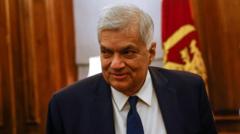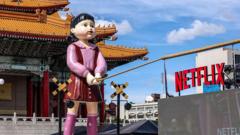In a stunning turn of events, Bolivia is set to elect its first non-left wing president in nearly two decades, as preliminary results from Sunday’s elections indicate a significant shift in the political landscape. Senator Rodrigo Paz Pereira, representing the Christian Democratic Party, emerged as the leading candidate, while former president Jorge Quiroga secured second place. With neither candidate achieving the requisite votes for a direct win, a run-off election is slated for October.
Bolivia Stands on the Brink of Change: First Non-Left Wing President in Two Decades

Bolivia Stands on the Brink of Change: First Non-Left Wing President in Two Decades
Amid an economic crisis, Bolivia gears up for a historic run-off election poised to break nearly 20 years of socialist rule.
Paz Pereira's unexpected rise to prominence marks a significant change from previous predictions that businessman Samuel Doria Medina would lead the polls. His campaign emphasized decentralizing power, advocating for a redistribution of funds from the central government to regional authorities, with a strong anti-corruption message encapsulated in his slogan "capitalism for all, not just a few". Plans for accessible credit, tax breaks, and reducing import barriers for local industries are central to his platform.
Quiroga, who briefly served as interim president and has a history linked to Bolivia’s military regime, represents continuity of a more capitalistic approach that may introduce foreign investment opportunities, particularly in Bolivia's lithium reserves—a vital resource for renewable technologies. Analysts speculate that a new government could pivot towards strengthening ties with the US, moving away from Bolivia's recent alliances with China and Russia, amid growing frustrations over the left-wing MAS (Movimiento al Socialismo) party's governance.
The MAS party, which previously dominated Bolivian politics, faces backlash from a populace grappling with high inflation, shortages, and economic instability. Discontent toward current president Luis Arce, who chose not to run again, was palpable during the elections, highlighted by hostile reactions to MAS candidates, including booing and physical confrontations at polling places.
Furthermore, the election was marred by tensions, including an explosive device reportedly detonated near a polling station where Andrónico Rodríguez, a MAS candidate, cast his vote. He and his party face divisions and scandals, complicating their political landscape.
Once a powerful figure, former president Evo Morales remains barred from running and has urged supporters to nullify votes as he navigates ongoing allegations of sexual misconduct—claims he calls politically motivated. His past as a formidable leader reveals deep rifts within the left, suggesting a new era could be dawning in Bolivian politics—one that resonates promise for change amid a troubled economy.
Quiroga, who briefly served as interim president and has a history linked to Bolivia’s military regime, represents continuity of a more capitalistic approach that may introduce foreign investment opportunities, particularly in Bolivia's lithium reserves—a vital resource for renewable technologies. Analysts speculate that a new government could pivot towards strengthening ties with the US, moving away from Bolivia's recent alliances with China and Russia, amid growing frustrations over the left-wing MAS (Movimiento al Socialismo) party's governance.
The MAS party, which previously dominated Bolivian politics, faces backlash from a populace grappling with high inflation, shortages, and economic instability. Discontent toward current president Luis Arce, who chose not to run again, was palpable during the elections, highlighted by hostile reactions to MAS candidates, including booing and physical confrontations at polling places.
Furthermore, the election was marred by tensions, including an explosive device reportedly detonated near a polling station where Andrónico Rodríguez, a MAS candidate, cast his vote. He and his party face divisions and scandals, complicating their political landscape.
Once a powerful figure, former president Evo Morales remains barred from running and has urged supporters to nullify votes as he navigates ongoing allegations of sexual misconduct—claims he calls politically motivated. His past as a formidable leader reveals deep rifts within the left, suggesting a new era could be dawning in Bolivian politics—one that resonates promise for change amid a troubled economy.

















